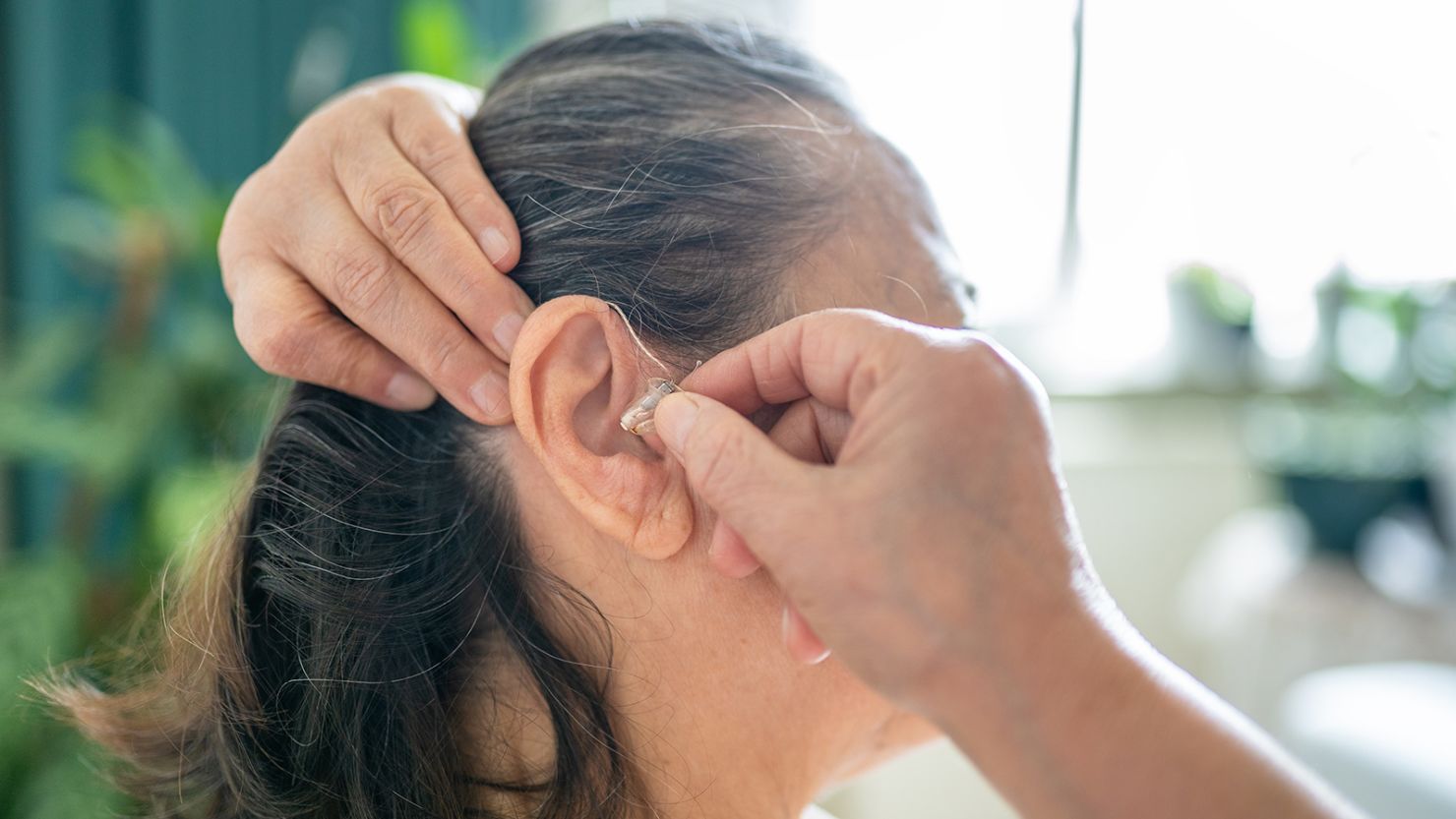Hearing aids might be an important tool in the effort to prevent cognitive decline and dementia, according to a new study.
Research has established that hearing loss in an important risk factor in developing dementia, but whether intervening with the hearing loss will also treat the progression of cognitive decline has been less clear, said senior study author Woei Shyang Loh, Head of Otolaryngology at the National University Hospital and National University of Singapore.
The new study published Monday in JAMA Neurology offers evidence that managing hearing loss may potentially help reduce or delay cognitive decline, Loh said.
A meta-analysis of 31 studies with 137,484 participants, both observational and trials, the research looked at the association between hearing loss and cognitive decline over a range of durations, from two to 25 years. The review found that people with hearing loss who wore devices to help performed 3% better on cognitive scores in the short term, according to the study.
The use of hearing aids was associated with a 19% reduction in long-term cognitive decline, the study found. When it comes to cognitive decline, preventing progression is important, the study authors noted.
“Dementia is far easier to prevent than treat, and exceedingly difficult to reverse,” said senior study author Dr. Benjamin Tan, Dean’s Fellow at the Yong Loo Lin School of Medicine, National University of Singapore.
Hearing loss, while a big risk factor for cognitive decline, is fairly easy to correct in developed countries, said Dr. Thomas Holland, physician scientist of the Rush Institute for Health Aging. Holland was not involved in the research.
“Get screened for hearing loss, and if you do have hearing loss, speak with your audiologist or physician ENT to ensure appropriate and optimal correction to help stave off the potential dementia risk and cognitive decline,” Holland said.
Is it time to talk to your doctor?
The researchers said the next question that needs to be examined is whether the severity of hearing loss changes the effectiveness of interventions when it comes to preventing cognitive decline.
But in the meantime, people with hearing loss should talk with their doctor about whether it is appropriate to use hearing aids, Tan said.
And it is never too early to intervene, he added, saying that the new study shows that benefits accrue over time.
“Therefore, affected patients should begin treatment now, if they want to see the benefits in a few years,” Tan said.
But the use of these devices can even benefit those who have begun to show a decline in cognition, and according to the new research, patients can still see benefit even if they did not add in hearing aids early, he added.
“Encouragingly, even patients who already started with mild cognitive impairment (“early dementia”) in our pooled analysis also benefitted from the use of hearing aids, as they also had approximately 20% lower risk of progressing to dementia,” said Tan via email. “This means that it is never too late to start using hearing aids, but early treatment may help to preserve the most cognition.”
Hearing aids aren’t the only way to prevent cognitive decline, however, and a well-rounded, preventive approach is important, Holland said.
“Along with getting your hearing screened by an audiologist or physician, work toward implementing healthy lifestyle modifications that have been shown to slow or reduce your risk of Alzheimer’s dementia,” he said.
Those include a healthy diet pattern like the MIND diet, which aims at preventing Alzheimer’s, or the Mediterranean diet, Holland said. Also included are moderate to vigorous physical activity, an active social life, good sleep, and stress reduction.
Holland recommends going to your primary care physician once a year for medical evaluations to appropriately control blood sugars and blood pressure, which are important for brain health.
And cognitively stimulating activities, like visiting museums, reading books or starting new hobbies, are also important to work into your life, Holland said.
Correction: A previous version of this story incorrectly stated the number of studies included in the meta-analysis.






